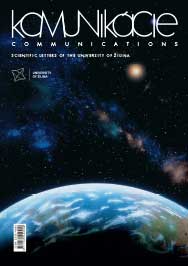Comparison on National Security Strategy 2002 and 2006: To What Extent Did Neoconservatives Influence Perception of the Us Foreign and Security Policy of the Second Presidential Administration of George W. Bush?
Comparison on National Security Strategy 2002 and 2006: To What Extent Did Neoconservatives Influence Perception of the Us Foreign and Security Policy of the Second Presidential Administration of George W. Bush?
Author(s): Pavel Nečas, Miroslav Kelemen, Blažej LippaySubject(s): Political history, Security and defense, Military policy, Transformation Period (1990 - 2010)
Published by: Žilinská univerzita v Žilině
Keywords: neoconservativism; democracy; unilateralism; pre-emptive strikes; "Bush doctrine"; war on terror; national security strategy;
Summary/Abstract: The purpose of this article is to identify differences in the perception of the US foreign and security policy by the first and the second Bush presidency. Due to the fact that both presidencies of George W. Bush were strongly influenced by neoconservative view on the US role in the World, the first chapter is dedicated to the impact of neoconservativism on foreign and security policy of President George W. Bush. Finally, it introduces reader to basic principles of President's Bush foreign and security policy implemented after September 11 terrorist attacks.The second chapter is the core chapter. It compares two major documents of Bush Administrations, which materialized his foreign and security policies. These are National Security Strategy 2002 and National Security Strategy 2006.
Journal: Komunikácie - vedecké listy Žilinskej univerzity v Žiline
- Issue Year: 13/2011
- Issue No: 2
- Page Range: 64-68
- Page Count: 5
- Language: English

